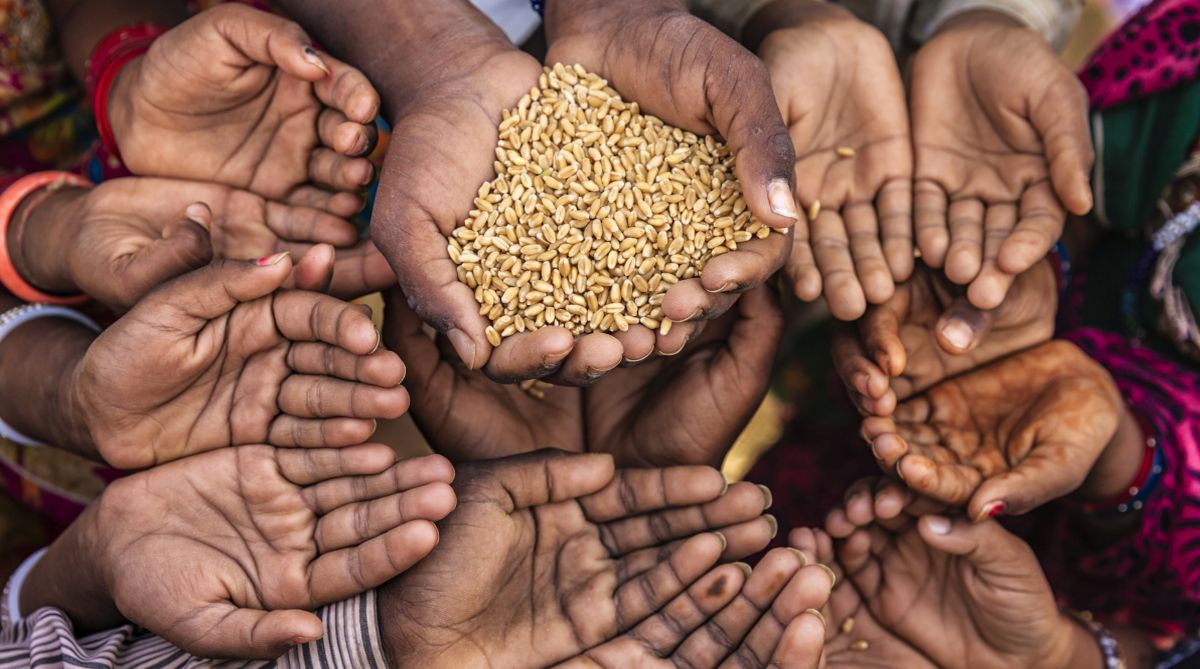Trinamul tears into Suvendu for misleading people
Mr Adhikari in his X handle wrote that permission had been given to set up houses for the affected people.

Representational Image (Getty Images)
Social sector benefits, notably rice at Rs 2 a kg and 100 days of work under the Mahatma Gandhi NREGS, have scarcely been able to address the grinding privation in the Junglemahal belt that straddles West Bengal’s Purulia, Bankura, West Midnapore and the newly-created Jhargram districts.
Whether or not this failure on the food front facilitated the Bharatiya Janata Party’s victory in the region’s panchayat elections need not detain us here.
In point of fact, 14 years after the five starvation deaths at Amlasole (West Midnapore), the recent death out of starvation of a 67-year-old woman in Purulia, has caused a flutter in the district administration’s roost. This is not to forget the deaths on account of starvation in Darjeeling’s tea estates.
Advertisement
In death, Bimala Pande symbolises the failure of the local administration in Purulia, a reaffirmation that the best-laid plans can be made to flounder by the bureaucracy, especially at the subordinate levels.
The prognosis that she “died of illness and not starvation” is to split hairs between cause and effect. That said, the response of the government has not been as facile as that of its predecessor in the wake of the Amlasole tragedy. It would be pertinent to recall that the Supreme Court had then ordered an inquiry into the tragedy in West Midnapore.
The Bengal Left had drawn a fine distinction between starvation and malnutrition. Death caused by hunger lends no scope for semantic quibbling.
Yet the present dispensation will have to concede that for all the drum-beating over welfare, the failure to provide the promised entitlements has driven ~ at least one individual ~ quicker to death than to a handful of grain.
The truth of the matter was recounted by none other than her son ~ “She was without food for seven days prior to her death on 9 August. We ran from pillar to post to get ration cards and other benefits like the Pradhan Mantri Awas Yojana, but failed to get our names listed.”
In the net, the family wasn’t listed in the NREGA scheme. Nor for that matter did it receive one kilogram of rice for Rs 2 promised by the state government to those below the poverty line in Junglemahal.
It is hard not to wonder if the welfare schemes have failed in one of West Bengal’s particularly vulnerable areas, verily with the section of the populace that needs them the most. It is pretty obvious that the Benthamite philosophy of the greatest good of the greatest number is yet to attain complete fruition in West Bengal.
The welfare schemes, while laudable, have not been uniformly beneficial. While there is little doubt that many have benefited, many others quite palpably have not.
And the issue ought to be accorded uppermost priority in course of Mamata Banerjee’s periodic visits to rural Bengal. Parts of the state wallow in the mire of poverty and hunger. Bimala Pande has emitted a painful signal ~ food insecurity is overwhelming.
Advertisement